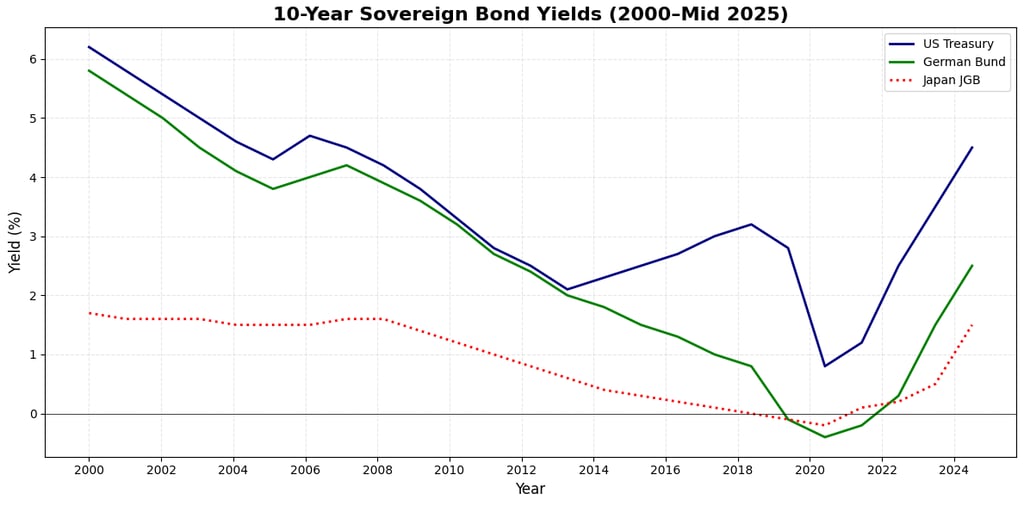Bond Yields Are Surging
“When people start borrowing money to buy things they consume immediately, the end of the cycle is near.” — Ray Dalio
5/28/20252 min read


When Yields Rise, the Economy Feels It
As yields climb in both the U.S. and Japan, borrowing costs are rising across the board. It may not sounds like a big deal, but the real-world effects are now hitting every corner of the economy:
Credit card delinquencies are rising. More Americans are falling behind on minimum payments, with balances hitting record highs.
Student loans will go into collections. After the pandemic pause, borrowers are struggling to keep up, leading to damaged credit.
Buy Now, Pay Later is breaking down. Platforms like Klarna and Affirm are seeing rising default rates, revealing the fragility behind the fintech credit boom.
Why is this happening? Because the cost to borrow money keeps going up. As the Fed holds rates higher for longer to combat inflation, yields on everything from mortgages to personal loans rise with it. But wages aren’t keeping pace. That’s putting strain on household budgets — especially those already living paycheck to paycheck.
And here’s the kicker: it’s not just consumers. Small businesses, commercial real estate borrowers, and even governments are feeling the pain because they need to refinance at lower rates.
What to Watch:
The 10-year Treasury yield is a critical barometer. If it stays at or above 4.5% in the U.S. for too long, expect more consumer credit pain and market volatility.
Bank charge-offs are rising — an early signal of wider financial contagion and financial stress.
Debt servicing costs are crowding out spending. That’s disinflationary, but it will also be painful.
At Iron Valley Investments, we help clients prepare for this new interest rate regime by stress testing portfolios and developing adaptive, resilient strategies.
This newsletter is for informational and educational purposes only and does not constitute investment advice or a recommendation to buy or sell any securities. All investments involve risk, including the possible loss of principal. Past performance is not indicative of future results. Iron Valley Investments is a registered investment adviser in the State of Pennsylvania. Registration does not imply a certain level of skill or training. A copy of Iron Valley Investments current written disclosure statement discussing Iron Valley Investments business operations, services, and fees is available at the SEC’s investment adviser public information website – www.adviserinfo.sec.gov or from Iron Valley Investments upon written request.
